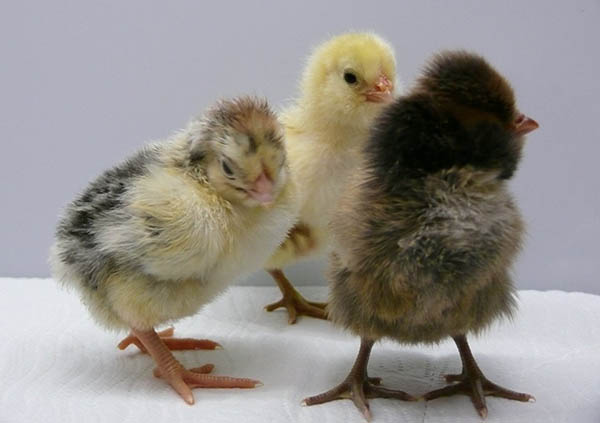Natural preferences behind early social interactions in newborns are timed
Early predispositions that drive new-born animals to approach and learn from other living beings are not permanent, new research suggests.

Scientists from Queen Mary University of London and the University of Trento, measured the length of time new-born chicks were sensitive to living or ‘animate’ objects that visibly change speed when they move.
The study, published in Scientific reports, found that this attraction to other living things was short-lived, with chicks losing the behaviour two days after birth.
Short-term sensitivity to cues
Dr Elisabetta Versace, first author of the study from Queen Mary University of London, said: “Our results show that a preference for ‘animate’ objects that change speed decreases two days after birth. These early predispositions are fundamental for directing responses to living objects and, in turn, enhance learning and social interactions. The observations match previous findings that suggest early responses to other cues, such as face-like configurations change over time in human babies. Other notable cases of short-term sensitivity to particular stimuli are seen with language and in the development of the visual system.”
The team measured the distance run by new-born chicks towards video animations of an ‘animate’ object, moving at a changing speed, and a non-animate object moving at a constant speed. They found that newly hatched chicks were more likely to approach objects that changed speed, but after two days this preference had disappeared.
Similar results were observed for all three breeds of chicks used in the study showing the widespread nature of this behaviour in young animals.
Dr Versace, said: “Older chicks were still moving towards the stimuli so we know this response wasn’t just due to the fact they were no longer interested. Like humans, chicks continue to develop in the first stages of life and we think this change in preference is due to the ongoing development of their nervous systems. We seem to be tuned to attend to particular stimuli in different stages of development.”
Important for early social development
Attraction to other living beings is important for early social development, and delays or absence of this response have been linked to developmental disorders like autism.
“Now that we have identified the precise time window for sensitivity, we can begin to investigate the changes in the brain at this time and potentially uncover ways to re-open or close these sensitive periods. This could be particularly relevant for treating neurodevelopmental disorders like autism” said Professor Vallortigara, from University of Trento.
More information
Research paper: 'A transient time window for early predispositions in newborn chicks' by Elisabetta Versace, Morgana Ragusa, Giorgio Vallortigara is published in Scientific Reports.
For media information, contact:
Sophie McLachlan
Faculty Communications Manager (Science and Engineering)
email: sophie.mclachlan@qmul.ac.uk.